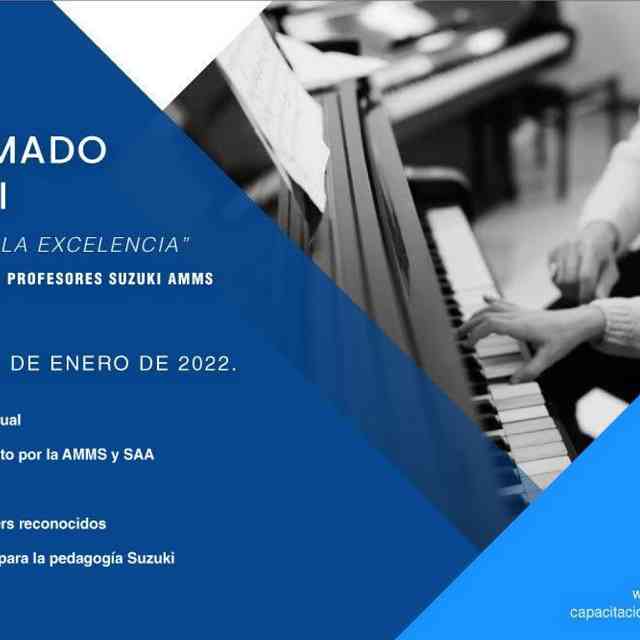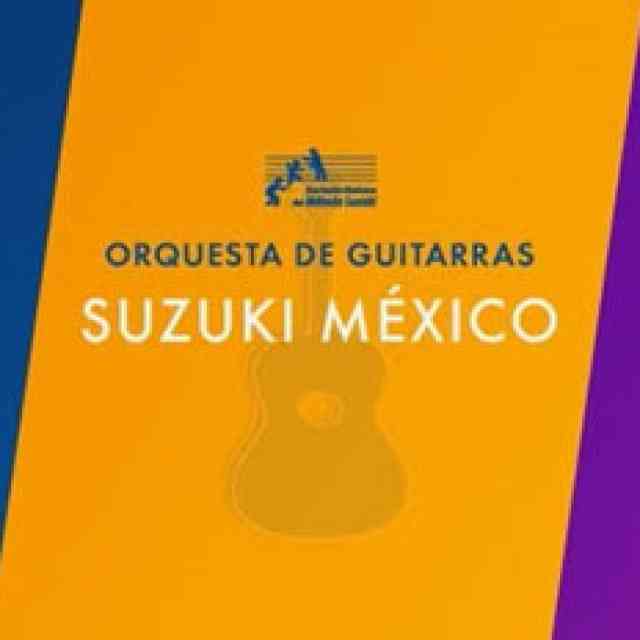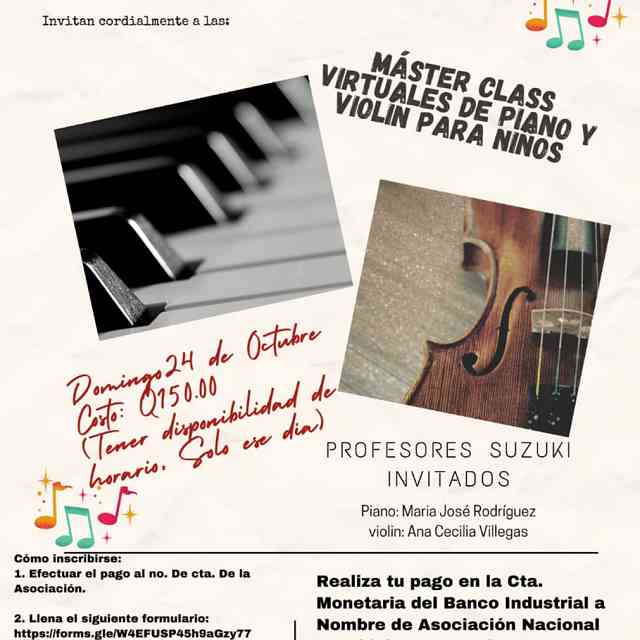The V National Suzuki Workshop
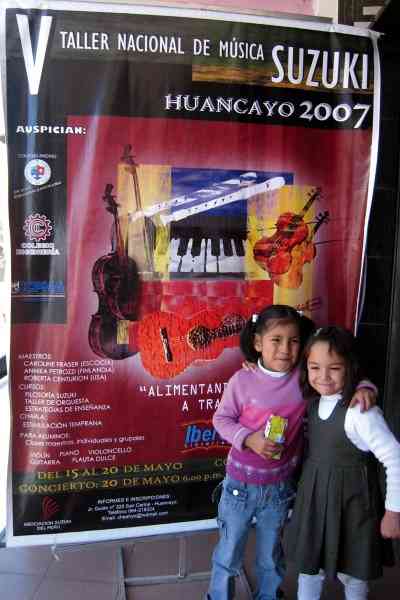
Huancayo V National Suzuki Workshop poster.
On May 15-20, 2007, the V National Suzuki Workshop of Peru was held in Huancayo in the Andean mountains from 15th-20th of May, 2007. It was sponsored jointly by the Asociación Suzuki del Peru and CHEA-El Centro Humanista de Expresión Artística. A dedicated organizational team was led by workshop directors Sabino Blancas and Rocio Villa. Annika Petrozzi, Isaac Garcia, Roberta Centurión, Luciana Castillo and Caroline Fraser made the eight-hour bus journey from Lima to teach cello, recorder, guitar and piano students. Allyson Abram traveled from Cusco to give violin lessons.
I gave philosophy and teaching strategies courses. The strategies course is teaching practice: new participants observed while more experienced participants taught young students on guitar, recorder, piano and violin. All were invited to discuss the classes and I gave my recommendations. We all learned a great deal from this experience.
On behalf of the Suzuki Association of Peru, I would like to recognize Suzuki Musique Montreal for their support to make this workshop possible. Due to their generous fundraising efforts we were able to help around forty children and teachers travel from Huánuco and Ayacucho to attend this event. Thank you for your help in spreading the Suzuki philosophy in the outlying regions of Peru.
Huarmey Workshop
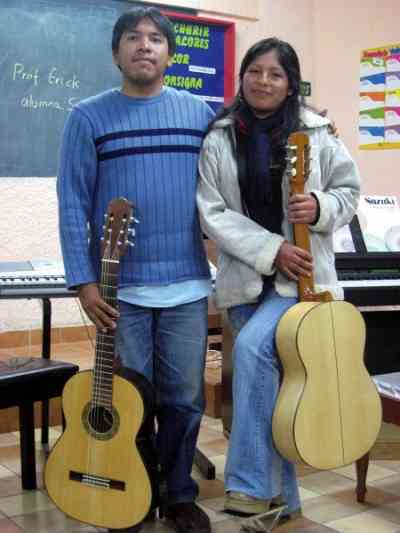
Erick and hist student at the Estrategías course.
On the 25th and 26th of June, 2007, I gave a workshop in Huarmey, a coastal town in the north of Peru. I arrived to find 70 participants eager to learn, but no music school or music teacher in the town and no hope of one in the near future. The participants were parents, early childhood teachers and people who work with mothers and babies in rural communities. I realized this was going to be one of the most challenging courses I had ever taught. I had to strip the Suzuki philosophy down to its essence and leave a message with the people of Huarmey, which would make a significant difference in their everyday lives. Music was an enriching thought but was not within their immediate reality.
At the end of the course I asked the participants what they were taking away with them. This is what they said:
-
All children can learn and have great potential. We shouldn’t think “he was born that way”.
-
Each child learns at his own pace, and we should not impose a curriculum to be completed within a certain time.
-
Adults must take responsibility for the children’s success in education, and we mustn’t blame failures on others.
-
In order to inspire the children we must teach with passion, and not with pressure.
-
First we must nourish the children’s souls.
These concepts may seem obvious to our readers; however, they are tremendously empowering messages for people who are geographically and economically disadvantaged, and who have been oppressed for generations. In 1968 Dr Suzuki addressed the United Nations asking that National policies on childcare be adopted by all nations of the world. In Huarmey we took one tiny step towards achieving Dr Suzuki’s goal.
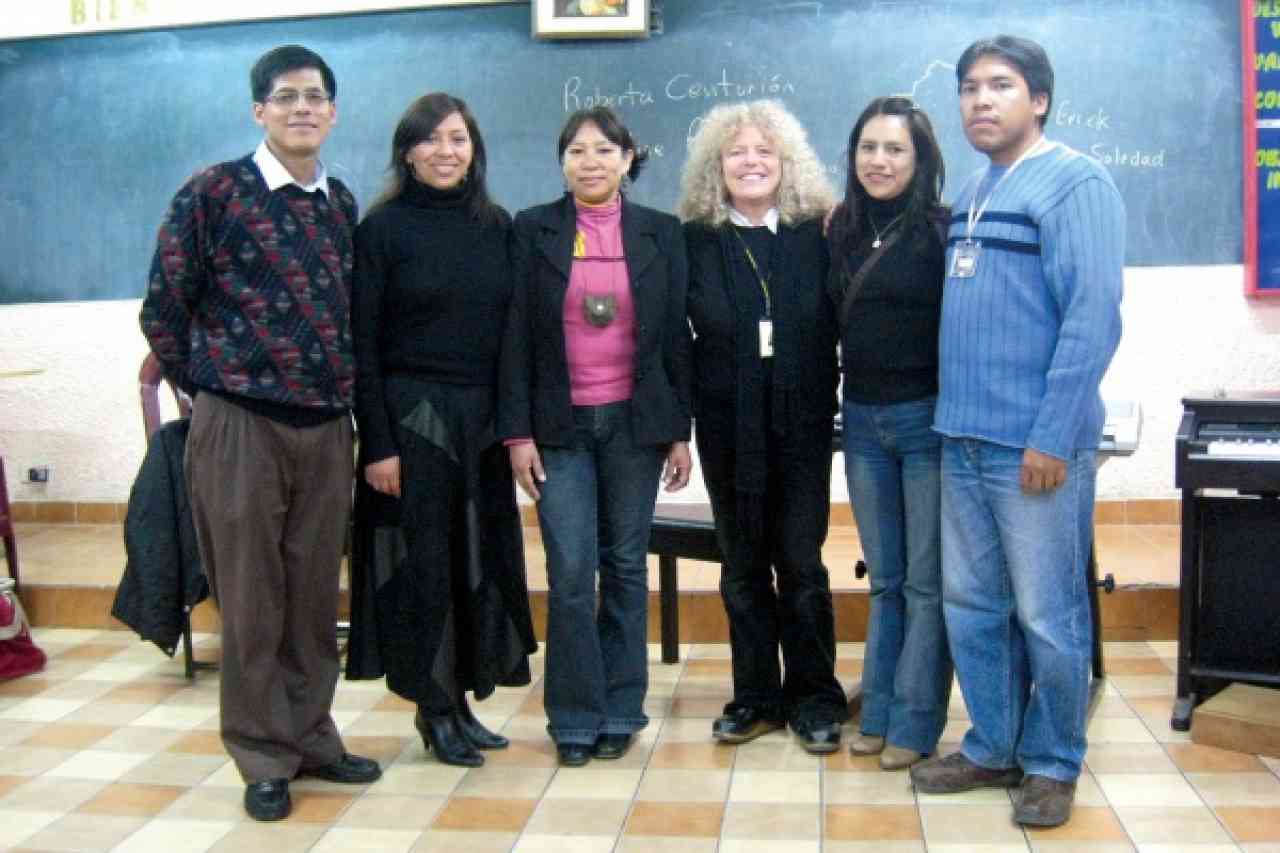
All workshop participants.


